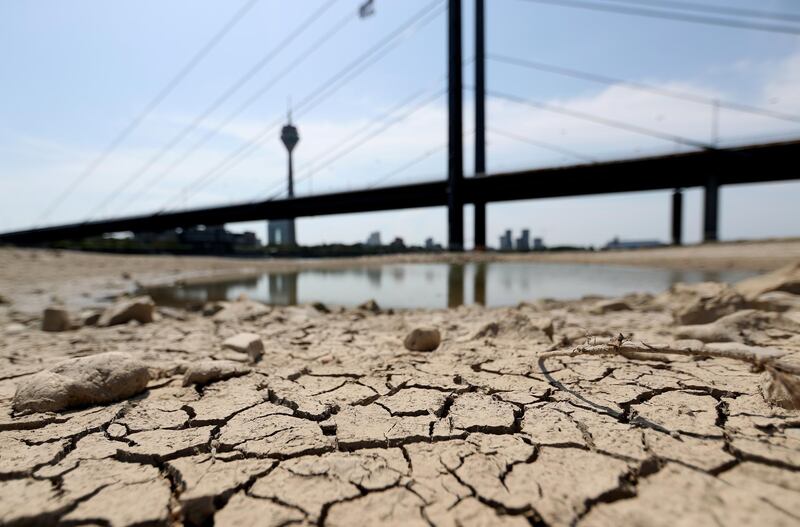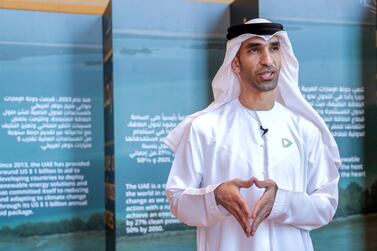In Ray Bradbury’s classic sci-fi story, a tourist who goes back in time to see a dinosaur accidentally tread on a butterfly, triggering through a complex causal chain the election of a fascist dictator in the present day. As Europe swelters in a record heatwave, there is much talk about climatic tipping points and the physical effects of global heating. The economic and political effects are subtler, but harder to deal with.
The UK recently recorded its highest temperature ever, 38.7 degrees Celsius in Cambridge. Paris, home of the climate deal intending to keep global warming below 2 degrees, saw a record 42.6 Celsius last month. The signs of the extreme weather are personal and tangible. A man, overcome by heat, collapses at a French château. Parisians rush out to buy air-conditioners, adding to the load on the electricity grid; most European homes have not needed them. Electricité de France closes two nuclear reactors as rivers have become too hot to provide cooling water.
Yet the general public appreciates the “good weather”, or at least jokes about putting up with the heat. Even broadcasters take the sweltering temperatures as something to be celebrated, not feared.
Over the next few years, the consequences of global warming will become more serious, but still the shortness of human memory will mean people and societies become psychologically accustomed to them. Physical adaptation is something else. New research suggests the US south-west could be struck by mega-droughts lasting decades, like those linked to the collapse of several native American civilisations some 500 years ago. The eastern Mediterranean drought from 1998 to 2012 was probably the worst of the past 900 years.
Yet these changes still seem like things that wealthy countries can tackle with physical infrastructure and preparedness, expensive as that may be – seawalls, reservoirs, drip irrigation, desalination plants, air-conditioning and more forestry fire-crews.
The economic effects are with us already, but hard to pick out amid the noise of ordinary business cycles. Morgan Stanley estimates that climatic disasters, mostly wildfires and hurricanes, have cost North America alone $415 billion (Dh1.5 trillion) in the last three years. The damage is often locally specific: the loss of a soybean crop, a ski resort, a coastal railway. Under many electoral systems, certain districts, particularly rural ones, have disproportionate power to decide the outcome. The young and economically active can move on, leaving behind the elderly and the lower-skilled.
Political and social consequences follow a long causal chain, in which climate change is an influence, not determinative. Consider the Syrian civil war, caused by the repression and mismanagement of the Assad regime, but shaped and intensified by immiserated rural populations fleeing drought.
Fear of refugees from this crisis contributed to the rise of right-wing populists in Europe and the slender vote in favour of Brexit. The ephemeral but frightening appearance of Isis amid the civil war and the shambles in post-invasion Iraq was exploited by Donald Trump in his narrow election win.
There is depressingly little sign that the US, Europe or Australia have thought beyond border walls, marine patrols, detention camps and deals with unsavoury regimes to keep out migrants. In decades to come, the hand of climate in crises across central America, Saharan Africa, the Middle East, central and south Asia will become more visible.
Syria is relatively small; the consequences of state breakdown in populous Egypt, Nigeria or Pakistan are terrifying. Not just Europe or the US, but large middle-income countries such as Russia, India, China, Turkey and Iran, will have to confront such crises, within and just beyond their own borders.
The implications for domestic politics in the west are worrying. No part of the political spectrum has articulated a convincing approach to the combined challenge of climate disturbance, migration, globalisation, geopolitical multipolarity and automation.
Even though the right rejects or at best downplays climate risk, its response is already clear: America First and Fortress Europe, fear, tariffs and nostalgia. Climate migrants will be an excuse for more crackdowns on immigration and civil liberties.
The left proposes versions of eco-authoritarianism, dramatic and implausible voluntary or guided changes in lifestyle, or bucolic fantasies of localisation. It is suspicious of the power of properly incentivised modern capitalism, despite its successes to date in areas such as renewable energy and electric vehicles. It wills the end – such as zero net carbon dioxide emissions by 2025 - without the means.
The technocratic centre puts forward worthy incrementalism, such as carbon taxes and research funding, which would have been adequate for the challenge in 1990. This could still be the backbone of a solution, but it has proved hard to implement even such modest measures.
In the present atmosphere in many countries of populism and polarisation, consensus is hard to find. Yet there must be coalescence around the broad principles of dealing with climate challenge, some combination of social and international solidarity, technological innovation and business opportunity.
The fluttering butterfly wings of climate shifts will ripple out through the global systems, creating crises that at first sight have nothing to do with the overheating atmosphere. Developed countries should strengthen their political systems at home to avoid hysterical and counter-productive reactions. Simultaneously, they have to work with the more capable governments in each region to build resilience in the weaker states. That costs money – but it will prove financially and morally superior to erecting walls.
Robin M Mills is the chief executive of of Qamar Energy, and author of The Myth of the Oil Crisis






